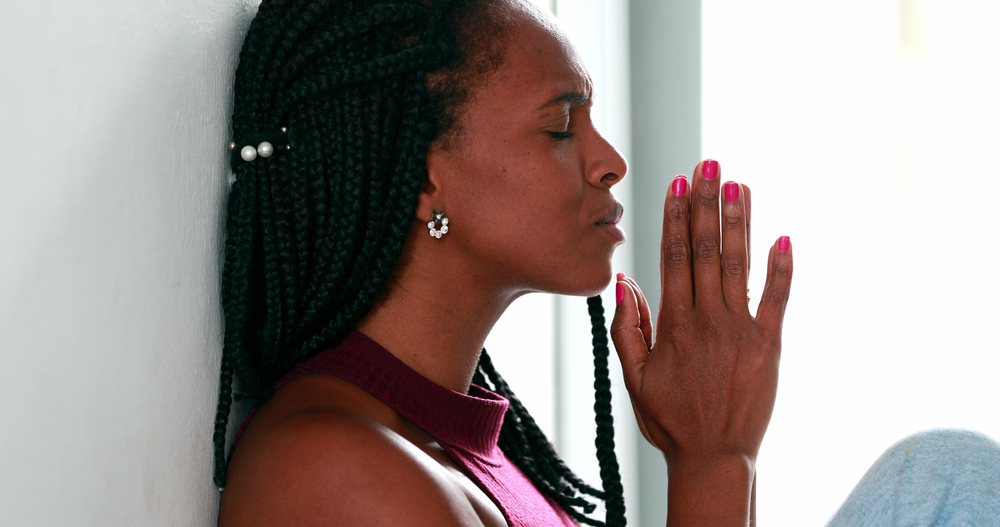State control of religion is a practice that has long been in operation in more totalitarian regimes like China, North Korea, Vietnam, and Nicaragua. One of the reasons for this push for control is that the religious sector often serves as the moral compass of society. Religious organizations and their leaders are key public figures, able to influence millions of people with a message that may contradict the political narrative. The late Archbishop Desmond Tutu is an example of one who spoke truth to power. His Nobel Peace Prize recognized the key role that faith communities and their leaders can play in a nation’s sociopolitical life.
Freedom of religion is a basket of human rights, far broader than praying in the privacy of your home or attending church on Sunday. It includes freedom of conscience, thought, belief and opinion, as well as the right to follow the faith of your choice—or to adhere to no faith at all. It is the right to assemble and form religious institutions that determine their confessions, doctrines, and ordinances. Importantly, it gives parents the right to pass on their faith, views, and values to their children, particularly in the early years of their development.
For these good reasons, the right to freedom of religion must be robustly defended against any erosion by the state. Human history is filled with horrific examples of the consequences of the state intervening in or interfering with freedom of religion. Europe endured centuries of violent conflict after the Reformation, as state-backed religious factions persecuted dissenters. When particular religious expressions gained state favor, persecution of those who believed differently inevitably followed. The Massachusetts Bay Colony’s execution of Quakers on October 27, now commemorated as “Religious Freedom Day,” is a stark reminder of the dangers of government-controlled or government-backed faith.
Historically, one of the hallmarks of any democracy worthy of the name has been the ability of its citizens to practice, express, and live out their faith freely, both in private and in public and without fear of sanction. It is therefore deeply concerning to note a growing trend for states—particularly in sub-Saharan Africa—to seek ways to intervene in and control the religious sector and its activities. State control of religion is already established in Rwanda and Angola and is currently under serious consideration in Kenya, Uganda, Namibia, and South Africa.
State regulation treats religious freedom as a privilege that it grants, rather than an inalienable human right guaranteed by international treaties and enshrined in the Constitutions of many nations. In Prince v. President of the Law Society of the Cape of Good Hope, the South African Constitutional Court affirmed that religious beliefs are protected even if they are bizarre, irrational, illogical, or incapable of scientific proof. You can believe in the man in the moon as long as you do not harm anyone else in the process and operate within the rule of law.
South Africa is a good case in point because the reasons given to establish state control of religion are common to other contexts where this is under consideration. Freedom of religion is enshrined in Section 15 of the South African Constitution, which guarantees freedom of belief and expression without qualification. The Constitution also established a Cultural, Religious and Linguistic Rights Commission (CRL), which has the specific mandate to uphold and protect this vital freedom and human right.
It was therefore an extraordinary development when, in 2017, the CRL produced a report entitled “The Commercialisation of Religion and the Abuse of People’s Belief Systems” and then pushed hard for the government to pass legislation to impose state regulation under its auspices. Their proposal included establishing state-appointed peer review committees to license religious practitioners and oversee churches, with the power to suspend or dismiss leaders found guilty of misconduct.
The CRL justified its call for state regulation of religion by highlighting extreme cases of abuse, such as fraud, fake miracles, and even dangerous practices like spraying insecticide on congregants. Examples of such abuse, particularly when amplified by media coverage, are often the catalyst for calls for state regulation of the religious sector. Kenya recently made world headlines when over 400 people were persuaded to starve themselves to death by a cult leader. In South Africa, the media showed images of the so-called Prophet of Doom spraying a brand of insecticide with this name into the face of a congregant, claiming he had a God-given power to heal using this technique. People have been encouraged to eat snakes and grass and even to drink petrol.
While such incidents are disturbing, they represent fringe elements rather than mainstream religious communities. Using isolated cases to justify sweeping regulations grossly misrepresents the role of faith in society. The overwhelming majority of religious leaders serve their communities with integrity and play an integral role in strengthening the moral fabric of their country. Moreover, existing laws already prohibit fraud, assault, and other criminal acts, regardless of religious affiliation. The problem is not a lack of regulation but rather a failure to enforce existing laws, which provide effective remedies when properly applied.
Religious freedom has never been a legal defense to excuse or justify a criminal act. These remain crimes, regardless of religious affiliation. Whether you are a pastor, a postman, or a politician, if you break an existing law, you should be prosecuted and, after due process, face the full consequences and sanctions for your unlawful actions. A detailed legal analysis revealed that every abuse cited in the CRL’s report was already illegal under South African law. It is the state’s responsibility to enforce these laws or to enact new ones if necessary. If this is not happening effectively, additional regulation will not solve the problem. When properly applied, existing laws resolve the issues, as seen in the case of the Prophet of Doom, who was found guilty on four counts of assault with intent to do grievous bodily harm.
A common argument for religious regulation is that clergy should be treated like professionals in law or medicine, requiring standard qualifications and ethical oversight. However, this analogy is deeply flawed. Unlike regulated professions, religion is not based on a universally accepted body of knowledge. There are over 40,000 Christian “denominations” worldwide (mostly subgroups of larger denominations or nondenominational sects), each with distinct theological interpretations. No government should therefore have the authority to determine which beliefs are “correct” or “acceptable.” Unlike other professions, religious practitioners are guided by a sense of divine calling rather than an academic qualification, although educating that calling is always strongly encouraged.
Any form of compelled training or requirement for a state-recognized academic qualification as a prerequisite for a license to practice as a religious leader will conflict with the right to religious freedom. Although presented as a way to counteract false teaching and reinforce theological orthodoxy, by this standard Christ’s chosen 12 apostles would have been disqualified since they were called “unlearned and ignorant men” by the religious authorities of their day. It is emphatically not the role of the state to support religious conformity or faith orthodoxy.
Moreover, the claim that the religious sector is unregulated is simply false. Religious organizations are already subject to numerous laws governing property ownership, banking, employment, and taxation. Most churches operate as registered legal entities, such as nonprofit organizations or trusts, each with its own existing compliance requirements. Noncompliance is often due to a lack of knowledge rather than intentional wrongdoing. Instead of imposing unnecessary regulations, the CRL (and other government agencies) should focus on educating and equipping religious practitioners with the information necessary to operate responsibly within the existing legal framework.
A further argument in support of state regulation of religion is that it will help stamp out charlatans and misguided theology. The proposed solution is for the state to appoint a “Peer Review Committee” of senior religious leaders of the major faiths, whose task would be to evaluate religious practitioners and those wishing to form a religious organization, to ascertain if their doctrine is acceptable. In the South African context, the CRL sought legislation to license all religious practitioners, organizations, and places of worship via this evaluation process. It proposed that the CRL would act as the “final arbiter of religion” and hold the “final decision powers” in religious disputes.
A simple analysis demonstrates that if the state appoints, empowers, and ultimately rules on the outcomes of these peer review mechanisms, it will have established a system of state control of religion. While it may appear benign and well-intentioned, it is easy to see that it can quickly turn cancerous. Furthermore, South African law recognizes the Doctrine of Entanglement, meaning that courts avoid ruling on religious doctrine and internal disputes. The state should do the same and intervene only when actual laws are broken. Any interference in evaluating the suitability of a doctrine or belief would be state overreach.
With regard to the financial aspects of the religious sector, the state’s role is to uphold the law, not to police a believer’s giving. Financial abuses do occur within religious organizations, but these are addressed by existing fraud and consumer protection laws. Law enforcement, not special regulations targeting religion, should handle any cases of deception or criminal activity. Religious organizations, like all other entities, must adhere to proper accounting practices and tax obligations. Singling them out for additional scrutiny would constitute unfair discrimination. Unless fraud or broken contractual promises are at play, regulating voluntary religious donations would be an overreach, undermining both financial autonomy and religious freedom.
This raises a broader question: Should the state protect people from the consequences of their own financial choices? Where does faith end and human gullibility begin—and is it the role of the state to draw this line? Some argue that giving money to religion is misguided to begin with, while others believe faith justifies sacrificial giving, as seen in the biblical story of the Widow’s Mite. It is worth mentioning that, if the state is serious about protecting the financially vulnerable, it should first address other high-risk financial activities, starting with a ban on operating casinos and state-run lotteries.
We do not need to guess the outcome of state regulation and its impact on the right to religious freedom. Such laws and systems are already in place in Rwanda and Angola. In Rwanda, it was reported in August 2024 that over 9,800 “prayer houses” and 7,000 “illegal churches” have already been shut down. In Angola, between November 2018 and May 2019, the government closed approximately 2,308 places of worship, including 46 mosques, as part of a nationwide law enforcement campaign aimed at combating criminality and regulating unlicensed associations and unregistered religious institutions. Additionally, in 2018, more than 2,000 unregistered churches were forced to close following the government’s approval of a new law requiring them to register with at least 100,000 signatures from followers.
Regulation of religion by the state represents an existential threat to religious freedom. When the government controls who can preach, what can be taught, and which institutions are legitimate, faith ceases to be an independent force and becomes a tool of the state. What is needed is not more regulation but better enforcement of existing laws. Faith communities must therefore remain vigilant against government overreach. The moment religious freedom becomes a privilege granted by the state rather than an inalienable right, it has already been lost.

